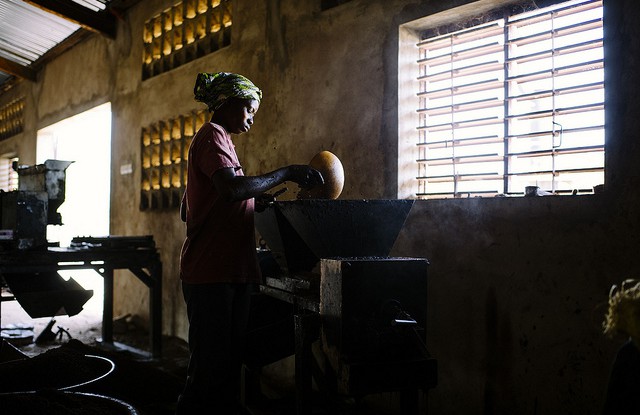
Shea nuts form a significant artisanal industry in West Africa, and women have traditionally been at its core, benefitting from substantial economic activity.
Their relationship to the shea nut is changing as men move competitively into the supply chain as demand for the commodity increases.
Making shea butter is complex and involves gathering the nuts, shelling, grinding and mixing them until they become butter, selling it at market. This work is associated with women and traditionally the seeds and butter have been known as “woman’s gold,” according to Trade for Development News.
“Today, shea is a hot commodity,” report Houria Djoudi, a senior scientist with the Center for International Forestry Research (CIFOR), and Violeta Gonzalez, head of partnerships, outreach and resource mobilization at the Enhanced Integrated Framework of the World Trade Organization in an opinion piece.
“Shea butter now travels from the hands of West African women across countries and continents, processed and packaged into items ranging from chocolate to face creams, but, they are not reaping enough of the rewards of shea’s newfound presence in the global marketplace,” Djoudi and Gonzalez write.
We want you to share Forests News content, which is licensed under Creative Commons Attribution-NonCommercial-ShareAlike 4.0 International (CC BY-NC-SA 4.0). This means you are free to redistribute our material for non-commercial purposes. All we ask is that you give Forests News appropriate credit and link to the original Forests News content, indicate if changes were made, and distribute your contributions under the same Creative Commons license. You must notify Forests News if you repost, reprint or reuse our materials by contacting forestsnews@cifor-icraf.org.